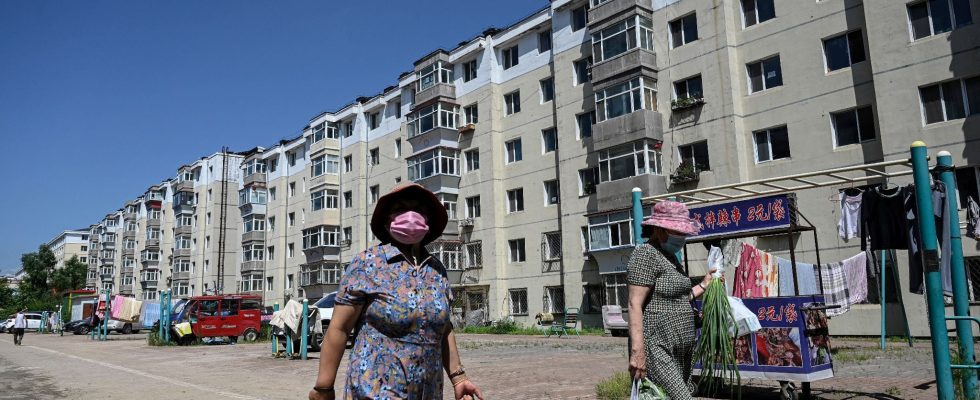This is the most pronounced fall in prices recorded since the second half of 2009, in the midst of the global financial crisis. For the fifth consecutive month, prices in China fell in January, according to data published this Thursday, February 8. China’s consumer price index (CPI), the main gauge of inflation, fell 0.8% year-on-year in January, compared with -0.3% the previous month, the National Bureau of Commerce said. statistics (NBS).
Analysts surveyed by the Bloomberg agency anticipated a decline in prices for January, but less pronounced (-0.5%). According to the BNS, this drop is partly explained by the “high basis of comparison” last year. The Lunar New Year Festival, the main family reunion of the year and period of great consumption, fell in January 2023. This year, it takes place in February, which distorts the comparison.
China had fallen into deflation – a lasting and widespread drop in prices – in July 2023, for the first time since 2021. After a brief rebound in August, prices have been in constant decline since September. This deflation in the Asian country is the reverse of the situation in the main economies, particularly Western ones, which are prey to inflation and a drop in the purchasing power of some of their inhabitants. Over the whole of 2023, inflation in China increased by an average of 0.2%, far from the rates recorded in the main economies, such as in France where it reached 4.9%.
The fall in food prices
“The main brake on inflation remains food prices, which fell (in January) by 5.9% year-on-year, the lowest level ever recorded,” underlines Lynn Song, economist specializing in China. at the ING bank. “These figures do not mean that China is stuck in a deflationary spiral”, he nevertheless qualifies, stressing that the consumer price index in January increased month-on-month (+0.3%), compared to to December.
While a decline in prices may seem like a good thing for purchasing power, deflation is a threat to the economy because consumers tend to postpone purchases in the hope of further declines. Due to a lack of demand, companies are then forced to reduce their production and agree to new discounts to sell off their stocks.
This situation, which weighs on their profitability, pushes them to freeze hiring or to lay off employees. Economists speak of a harmful spiral because this phenomenon is an additional brake on consumption.
“A persistent deflationary pressure”
For its part, the producer price index (PPI) contracted again in January (-2.5%) for the 16th consecutive month, the BNS announced this Thursday. This index, which measures the cost of goods leaving factories and gives an overview of the health of the economy, was already down 2.7% in December. Over the whole of 2023, it fell by 3%. Producer prices in the red are synonymous with reduced margins for companies.
In addition to sluggish consumption, activity is also being penalized in China by a real estate crisis, high unemployment among young people and the global economic slowdown which is weighing on demand for Chinese goods and therefore factory activity. “China is facing persistent deflationary pressure” and “must take rapid and energetic measures to avoid the risk of a wait-and-see attitude” among consumers, argues economist Zhiwei Zhang of Pinpoint Asset Management.
China has several times announced measures to save its real estate sector but the results have so far had little effect. For their part, Chinese stock markets have been among the worst performing globally in recent months. In this context, China dismissed Yi Huiman, the head of the market regulator (CSRC), from his position on Wednesday.
The future is not expected to be brighter in China, where the economy is expected to remain at half mast. Beijing recorded one of its lowest GDP growth in three decades in 2023 (+5.2%), even if forecasts were more pessimistic. Its economic growth is expected to slow further in the coming years, according to the International Monetary Fund. The IMF therefore forecasts an increase in GDP of 4.6% in 2024 then 3.5% by 2028.
